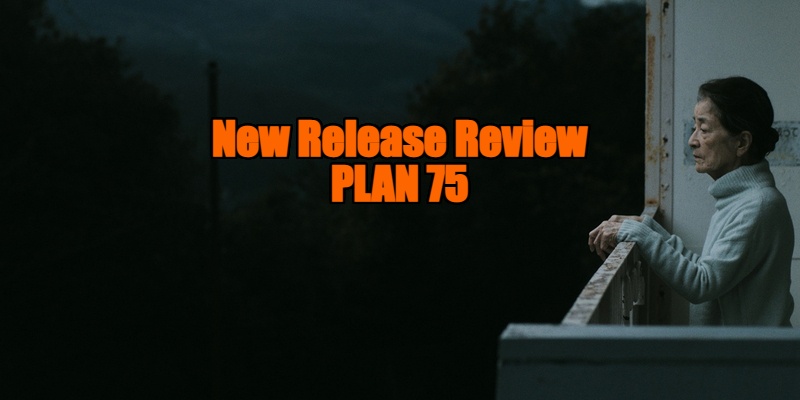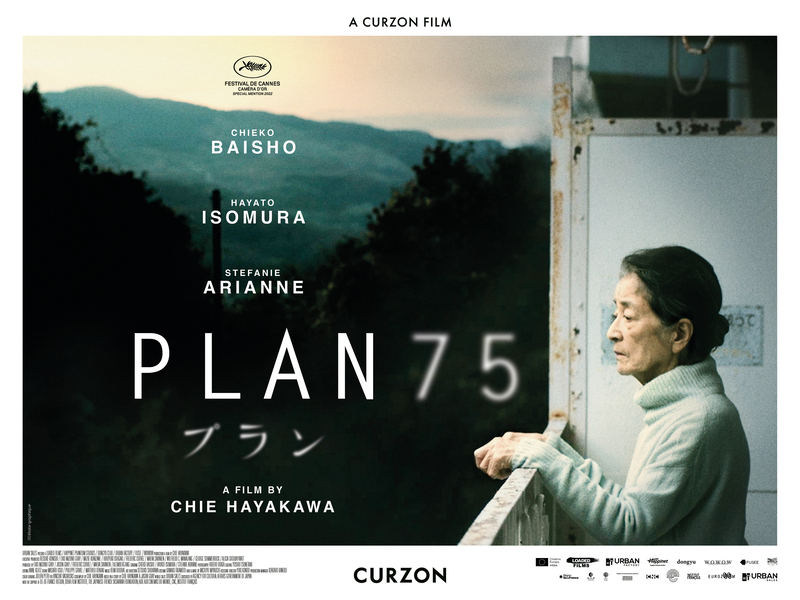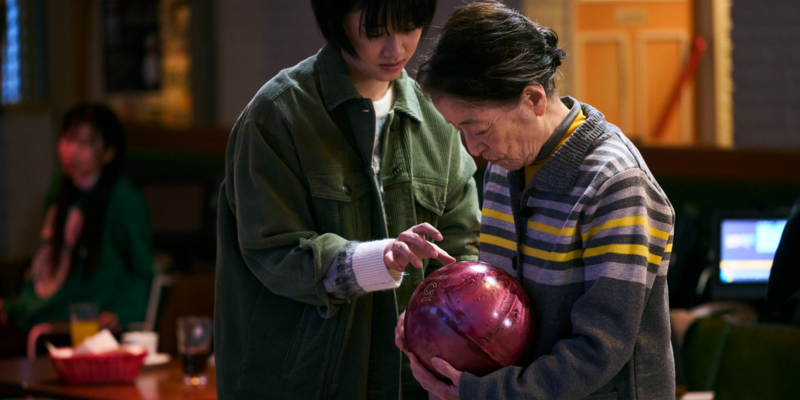
To cull an aging population, Japan offers its elderly citizens the chance
to voluntarily end their lives.
Review by
Eric Hillis
Directed by: Chie Hayakawa
Starring: Chieko Baisho, Hayato Isomura, Stefanie Arianne, Yuumi Kawai, Takao Taka

Like most first world countries, Japan is facing a looming aging
crisis, with an elderly population that could soon be unable to rely on
the support of a dwindling youth. There are various reasons for this,
but few easy solutions. In writer/director Chie Hayakawa's
feature debut Plan 75, co-written with Jason Gray, one unpalatable but not entirely
far-fetched solution is brought into being. In the near future, Japan's
government enacts the titular plan, which allows all citizens over the
age of 75 to avail of assisted suicide, with their funeral expenses
covered by the state and a gift of $1000 to spend as they wish.
It's hard to imagine such a proposal going down well in any western
nation (just look at the riots provoked in France when the government
proposed raising the pension age from 62 to 65), but Japan is different.
The country has a centuries old tradition of selling sacrifice to its
people as a form of patriotic duty, along with an obsession over honour.
It's not hard to imagine how a Japanese regime might exploit this, and
some academics in the country have actually suggested programmes not
entirely different to the one presented here.

Using a quotidian approach not entirely dissimilar to that seen in
Soderbergh's Contagion, Hayakawa imagines how this might play out by presenting us with
various characters caught up in the procedure. The heart of the film is
78-year-old Mishi (Chieko Baisho), who initially visits a Plan 75
centre out of curiosity. The process isn't unlike signing up for
insurance or a cellphone plan, complete with follow-up calls that
purport to see if you're happy with the service but which are really
intended to make sure you don't opt out. When Mishi loses her job as a
cleaner due to her employer's worries over how it might appear to have
elderly workers on site, she struggles to find both work and a new
apartment. Too proud to accept welfare, Mishi decides to opt into Plan
75.
This sees Mishi's story intersect with those of several other
characters. Himoru (Hayato Isomura) is a young employee of the
programme who begins to question his job when his estranged uncle Yukio
(Takao Taka) signs up as his latest "client." Fellow Plan 75
employee Yoko (Yuumi Kawai) is assigned to liaise with Mishi over
the phone in the days before her scheduled departure from this world and
breaks the rules by meeting her elderly "client" in person. Filipina
immigrant Maria (Stefanie Arianne) takes the grim job of
undressing the corpses of those who opted for Plan 75 in order to pay
for her daughter's surgery.

While all of these character arcs might lead to histrionics and
overplayed drama, Hayakawa adopts the sort of toned down, sensitive
approach we've come to associate with Japanese drama. It all plays out
in workaday fashion, and this downplayed presentation is what really
sells the concept as something more tangible than science fiction.
Watching the rehearsed interactions of Himoru, Yoko and other Plan 75
representatives (which feel imported from corporate America) towards
their clients is as frustrating and disheartening as watching a smiling
politician visit a food bank. There's a certain irony that the one
character you might expect to rebel against this madness, Maria, whose
Catholicism must surely make her role very difficult, is the most
pragmatic, forced to take part in this horror to protect her family,
though she does get a quiet moment of heroism late on.
I've always felt elderly actors are more naturally cinematic than their
younger counterparts, so much more expressive, with decades of life
etched in their faces like graffiti carved into a tree bark. Baisho is
immensely watchable as Mishi, even though the character never does
anything particularly dramatic beyond signing up for her own demise.
We're left to observe as she goes about her daily chores, meets friends
and watches life from park benches. Her smile is a gift to Hayakawa,
immediately illustrating the filmmaker's point with its luminescence.
But it's the small gestures, like how Mishi smoothes out a dishcloth for
what will presumably be one last time, that are the most affecting.
You'll find yourself wishing Mishi would change her mind, but you might
also ask yourself if you've done anything to make life a little better
for the senior citizens in your own periphery.

If you support the legalisation of assisted suicide, you might cast a
sideways glance at Plan 75 and question its intentions -
is this to euthanasia as those pictures of buckets of aborted foetuses
are to abortion, a manipulative piece of propaganda? But nothing about
Plan 75 suggests that it's a critique of euthanasia, but
rather of genocide. Making assisted suicide available to all would
constitute an act of compassion, whereas targeting a specific group is
simply sinister. It would be like making abortion available, but only to
members of a specific ethnicity. Regardless of its intentions,
Plan 75's takeaway is clear. Life can be mundane, but it sure beats the
alternative.


